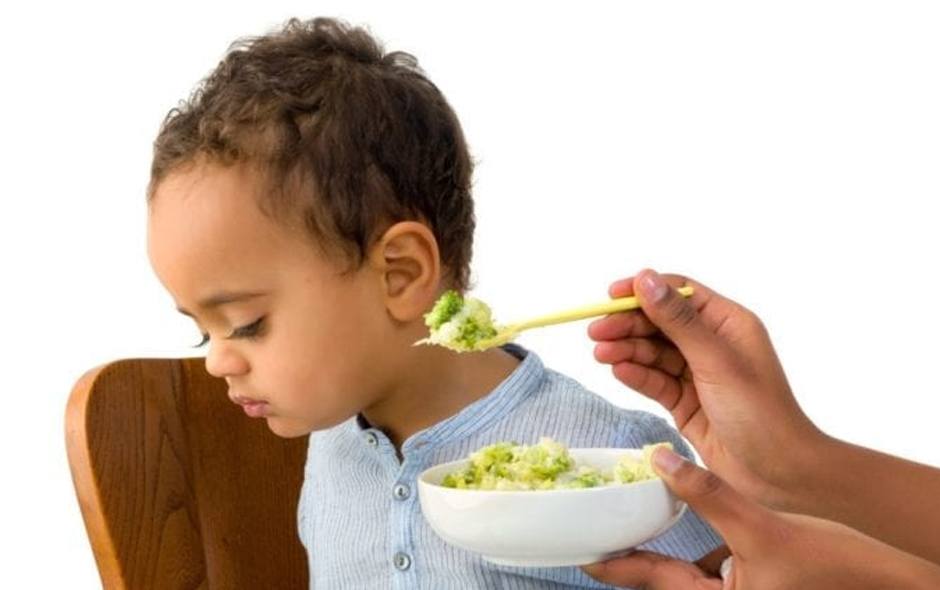

Why doesn’t my child want to eat?

Viviane Cappellari
DHA License Number: 00082911-001
Head of Speech & Language Department
MS, SLP

One of the scariest challenges mothers can face is not being able to feed their children. Having a child who is a picky eater has become one of the major concerns for parents. In a recent study, it was estimated that almost 60% of parents who participated were concerned about their children’s feeding1. But is this really a new issue? Definitely not. We all know adults who can’t tolerate some spices, fruits, or veggies. Some people adopt restrictive diets, but this is culturally acceptable. However, lately the idea of eating healthy food has become a must. We all know the benefits of a diet based on variety of fruits, veggies, grains, etc. A longitudinal research published at Childhood Obesity journal reported that children’s poor nutrition intake and dietary quality can negatively impact their growth and development, increasing the likelihood of children exhibiting reduced attention, less energy to daily routines, and emotional and behavioral issues2.
Why do 22% of children between 4 months and 30 months become selective in their diet3? These children are unwilling to either eat familiar or novel foods, and we tend to refer to them as picky eaters. Contrary to what some parents might think, this is not just a behavior that suddenly starts. A systematic meta-analysis of 32 previously published studies adopted a socioecological model to correlate the possible causes of neophobia (extreme fear or dislike to unfamiliar or new things, in this case food) and picky eating in children below 2 years old. 3 The research has classified the causes into 4 broad categories: Cell (genetic and biological factors), child (individual characteristics), clan (parent’s characteristics and family dynamic) and community and country (access to food, social and cultural influences). This study has identified correlates linked to many reasons for a child to refuse food. Additionally, it has highlighted the importance of a broad and multidisciplinary investigation to quantify the degree and severity of the neophobia or picky eating in order to establish the best approach.
Many recent studies have suggested that parent-child interaction can promote better eating habits. In addition, some non-profit organizations committed to best clinical practice, education, and research have established recommendations for parents aiming to prevent meal times battles.
Here are some tips for addressing mealtime battles:
- Respect your child’s appetite or lack of it. We don’t want meal times to become unpleasant and stressful experiences.
- Stick to a routine. If you have introduced a fruit or a vegetable, keep this food item as part of your child’s diet for a while, so it becomes familiar. Try to establish a routine for meal times and if your child refuses to eat, avoid replacing meals with milk or juices. Try to offer your child an opportunity to eat nutritious food in the next snack time.
- As much as possible try to have a family meal. Avoid preparing a special menu for your child. Eating the same food as your child it is a great opportunity to model appropriate mealtime behaviors. And avoid preparing other food options if your child has refused the food you have offered.
- Be patient, creative and disciplined in introducing new foods. Your child might need repeated exposure to a new food before the first bite. A good way to support this introduction is allowing your child to play with food without feeling pressured to eat.
- Don’t expect your child to eat a meal that you aren’t willing to eat. You are a role model for your child, and they will share the attitudes you show towards food. Also, watching brothers and sisters or peers at school who have positive attitudes towards diverse foods can be a positive influence.
- Give your child a chance to take part of the food selection and preparation. Talk about food and promote your child’s curiosity about how different foods can taste.
- Don’t use food items as a positive reinforcement, such as offering sweets when your child finishes a meal. By doing this, you might be reinforcing that the most delicious and interesting food is the desert. As much as possible, redefine desserts and treats as fruit, yogurt or other healthy choices.
- Reduce distractions around mealtimes, such as TV or screen time. Bringing the entire family together for meal times is a great way to link eating to happy memories.
If you are concerned that your child might have behaviors of picky eating, keep in mind that eating habits do not change as quickly as you might expect. Try to manage your frustrations before you think of managing your child’s eating issues. And always ask for professional help if needed. There are professionals in different areas who are specialized in dealing with feeding disorders.
Sources:
1 Fisberg, M. Editorial: Feeding Difficulties in Children and Adolescents. Frontiers in Pediatrics 2018; Vol. 6:105.
2 Natasha Chong Cole at al. Correlates of picky eating and food neophobia in young children: a systematic review and meta-analysis Nutrition Reviews VR 2016; Vol. 75(7):516–532.
3 Brown, C. MD at all, Association of Picky Eating and Food Neophobia with Weight: A Systematic Review. Childhood Obesity 2016; Vol. 12, 4.


